Biden Doubles US Emissions Cut Target As Summit Lifts Climate Hopes
President Joe Biden on Thursday doubled US ambitions on slashing greenhouse gas emissions, leading Japan and Canada at a summit in making new commitments that bring the world closer to limiting the worst climate change.
Putting the United States back at the forefront on climate, Biden told a virtual Earth Day summit that the world's largest economy will cut emissions blamed for climate change by 50 to 52 percent by 2030 compared with 2005 levels.
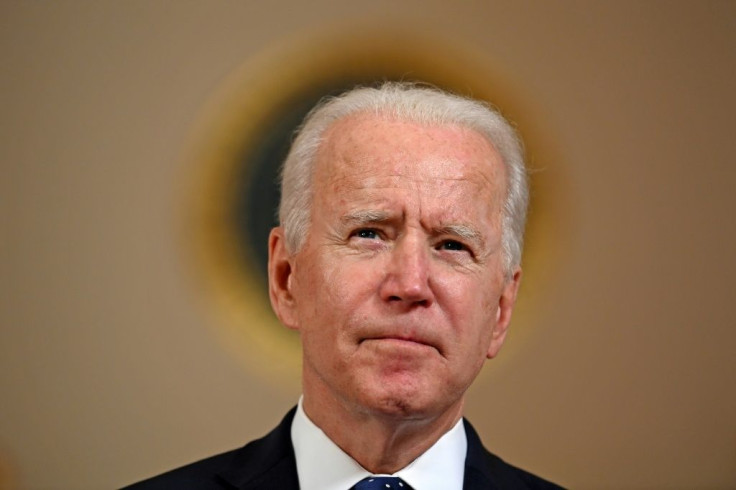
"The cost of inaction keeps mounting. The United States isn't waiting," Biden told a two-day summit of 40 leaders including the presidents of rivals China and Russia and Pope Francis.
"We have to step up," Biden said. "We have to take action -- all of us."
Biden's early and aggressive environmental push marks a drastic shift from his predecessor Donald Trump -- but quickly raised questions on whether the United States can keep promises if another climate-skeptic president is elected in the future.

John Kerry, the former secretary of state who has become Biden's globe-trotting climate envoy, insisted that change will be permanent due to market forces no matter what happens in US elections.
"No politician -- no matter how demagogic or how potent or capable they are -- is going to be able to change what that market is doing because it will have moved, it will have had four years of entrenchment," Kerry told reporters.
With Thursday's pledges, Kerry said more than half the world's economy has committed to action to keep the planet's temperature within 1.5 degrees Celsius (2.7 degrees Fahrenheit) above pre-industrial times, the aspiration set in the Paris Agreement to avoid the most severe effects of climate change.
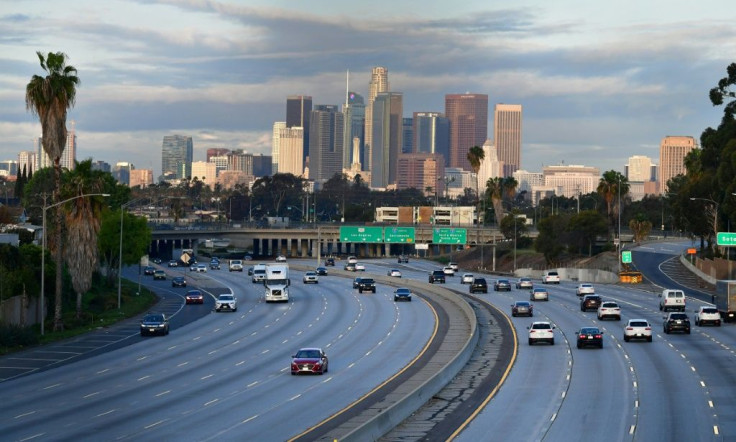
Japanese Prime Minister Yoshihide Suga, who discussed climate last week when he was Biden's first foreign guest, significantly raised the goals of the world's second largest developed economy to cutting emissions by 46 percent in 2030 compared with 2013.
Canadian Prime Minister Justin Trudeau, another early ally of Biden, boosted ambitions of his energy-exporting country to reductions of 40-45 percent below 2005 levels, compared with an earlier target of 30 percent.
"We must take action now. Because there's no vaccine against a polluted planet," Trudeau said.
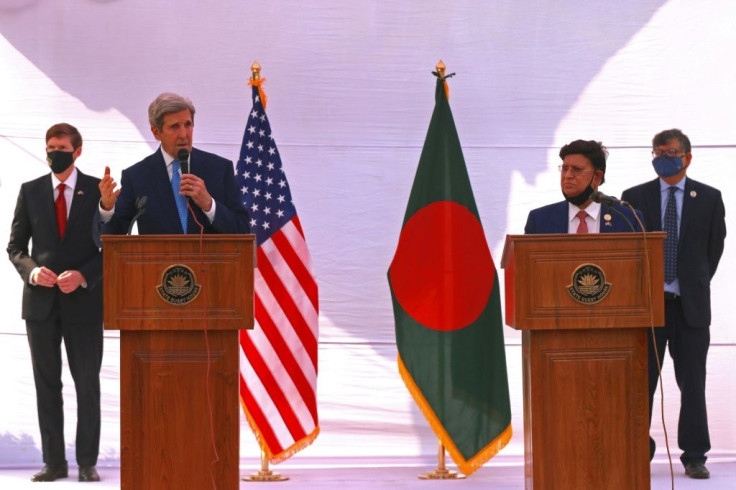
UN Secretary-General Antonio Guterres hailed the pledges as a sign that "the tide is turning for climate action" but urged immediate follow-up.
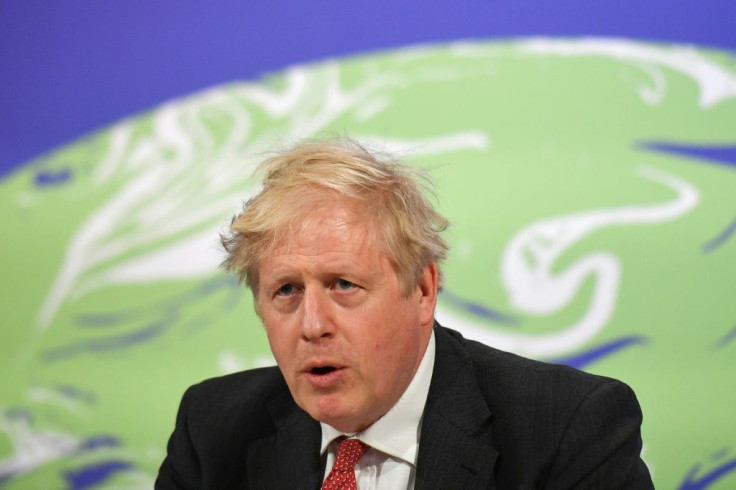
The European Union this week confirmed its own ambitious goals and former bloc member Britain on the eve of Biden's summit released the most far-reaching targets of any major economy with 78 percent cuts from 1990 levels by 2035.
British Prime Minister Boris Johnson called Biden's pledge "a game-changer."
Britain in November will host a UN conference in Glasgow that aims to upgrade the Paris Agreement.
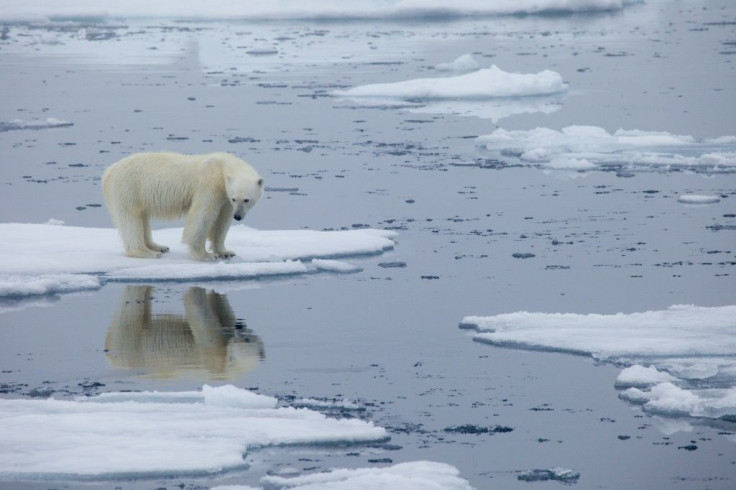
Kerry said the next six months will be "absolutely criticial," calling Glasgow "our last best hope to be able to coalesce the world in the right direction."
Under the 2015 Paris accord, former president Barack Obama said the United States would cut emissions by 26 to 28 percent by 2025 -- a goal that Biden, his vice president, has now dramatically scaled up.
But Greta Thunburg, the emblematic 18-year-old climate champion, accused politicians of still not understanding the scale of the climate crisis as she pointed to continued subsidies for fossil fuels.
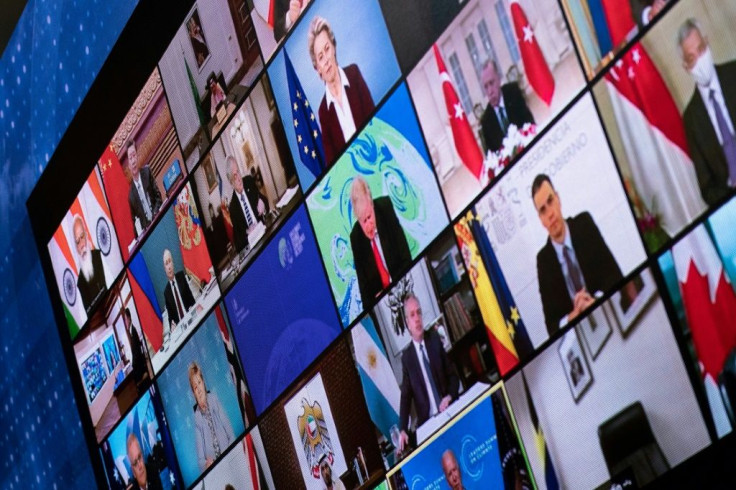
"How long do you honestly believe people in power like you will get away with it?" she told an Earth Day hearing in the US Congress by videolink.
In a smellier way of showing discontent, climate militants rolled pink wheelbarrows to the White House to dump cow manure as they described Biden's plan with a choice epithet.
The White House's stately East Room was decked out with a patch of moss for the virtual summit, with Biden, Kerry and much of the US leadership taking part.
In a brief glitch, Secretary of State Antony Blinken cut off a recorded video from French President Emmanuel Macron to hear from Russian President Vladimir Putin, who appeared to be impatient to make his live remarks.
Both Putin and Chinese President Xi Jinping spoke of commitments to fighting climate change, agreeing to participate despite high tensions with Biden's three-month-old administration.
Xi reiterated his pledge last year that China -- by far the world's largest emitter -- would go carbon neutral by 2060.
"China has committed to move from carbon peak to carbon neutrality in a much shorter time span than what might take many developed countries, and that requires extraordinarily hard efforts from China," Xi said.
He said China would "strictly control" coal-powered plants.
But environmentalists have voiced alarm at China's slow pace of retiring coal, which is the dirtiest form of energy but politically sensitive due to mining jobs.
Faced with opposition from Trump's Republican Party, Biden has sought to move quickly on climate and has cast his efforts as a way to create well-paying jobs.
Biden has proposed a $2 trillion infrastructure package that includes a major focus on greening the economy, including investment in renewable energy, electric cars and public transportation.
Biden also announced that the United States would double aid off Obama levels to the poorest nations bearing the brunt of climate change -- another reversal from Trump, who cut off all such funding.
President Moon Jae-in announced that South Korea would no longer fund coal-powered plants overseas after backing, along with Japan and China, billions of dollars in dirty projects in Asia.
Brazilian President Jair Bolsonaro, one of Trump's few international allies on climate, sounded a conciliatory note as he promised carbon neutrality by 2050 -- 10 years earlier than previously announced.
He also vowed to stop illegal deforestation by 2030 -- a vital measure for the planet, as the Amazon sucks up carbon, but one that has been met with skepticism due to Bolsonaro's alliance with industry.
A UN report late last year said that the world was on course for warming of three degrees Celsius -- a level at which the planet is forecast to see many glaciers and ice caps melt, low-lying areas submerged and increasingly severe droughts, floods and disasters that could trigger famine and mass migration.
© Copyright AFP {{Year}}. All rights reserved.





















